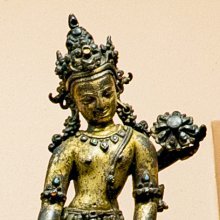Stone: 1 definition
Introduction:
Stone means something in Hinduism, Sanskrit. If you want to know the exact meaning, history, etymology or English translation of this term then check out the descriptions on this page. Add your comment or reference to a book if you want to contribute to this summary article.
Images (photo gallery)
(+282 more images available)
In Hinduism
Vastushastra (architecture)
Source: Shodhganga: Elements of Art and Architecture in the Trtiyakhanda of the Visnudharmottarapurana (vastu)Stone represents an important Material for the Construction of Temples, which was carefully examined by the architect, according to the Viṣṇudharmottarapurāṇa, an ancient Sanskrit text which (being encyclopedic in nature) deals with a variety of cultural topics such as arts, architecture, music, grammar and astronomy.—Finding of proper types of materials is one of the important aspects for any construction. The quality of stones is very important in the construction of temple. Indian scriptures state that to procure the stones, the astrologer and the architect should go to mountain and examine the stones. In the Viṣṇudharmottarapurāṇa a proper examination of stone is suggested in this regard. The stone used in the Architecture of a temple should be uniform in colour, glossy, underground, massive, soft, broad in size, void of sand, clean and washed in pure water, placed under the shade of trees or it may be lying near a temple.

Vastushastra (वास्तुशास्त्र, vāstuśāstra) refers to the ancient Indian science (shastra) of architecture (vastu), dealing with topics such architecture, sculpture, town-building, fort building and various other constructions. Vastu also deals with the philosophy of the architectural relation with the cosmic universe.
See also (Relevant definitions)
Starts with: Stone apple, Stone bamboo, Stone ginger, Stone leek, Stone root, Stone seed, Stone tree, Stone wood, Stoneseed.
Ends with: Blue stone, Circular stone, Limestone, Precious stone, Small stone, Touch-stone.
Full-text (+3990): Shila, Pasana, Upala, Shalagrama, Ratna, Asma, Aupala, Silapatta, Gravan, Suryakanta, Sphatika, Ashmari, Vaidurya, Asman, Asmana, Patthara, Drishad, Tanka, Shaila, Pashanadarana.
Relevant text
Search found 377 books and stories containing Stone; (plurals include: Stones). You can also click to the full overview containing English textual excerpts. Below are direct links for the most relevant articles:
The Agni Purana (by N. Gangadharan)
Chapter 46 - Characteristics of different Śālagrāma stones
Chapter 43 - Installation of deities in the temples
Rasa Jala Nidhi, vol 3: Metals, Gems and other substances (by Bhudeb Mookerjee)
Introduction to Amorphous stones (uparatna)
Part 6 - Uparatna (6): Upala (chalcedony, opal, and agate) < [Chapter XXVII - Uparatna (minor gems)]
The Skanda Purana (by G. V. Tagare)
Chapter 37 - The Ultimate and Eternal Sudarśana Cakra on Stone at Dvārakā < [Section 4 - Dvārakā-māhātmya]
Chapter 251 - Curse to Viṣṇu < [Section 1 - Tīrtha-māhātmya]
Chapter 243 - Importance of Śāligrāma Worship < [Section 1 - Tīrtha-māhātmya]
Parama Samhita (English translation) (by Krishnaswami Aiyangar)
Chapter 23 - Characteristics of Images (bimba-lakṣaṇa)
Chapter 18 - Preliminary ceremonies to consecration (adhivāsana)
Chapter 19 - Installation of the deity in a temple (sthāpana)
Dhammapada (Illustrated) (by Ven. Weagoda Sarada Maha Thero)
Verse 161 - The Story of Mahākāla Upāsaka < [Chapter 12 - Atta Vagga (Self)]
Verse 72 - The Story of Saṭṭhikūṭa-Peta < [Chapter 5 - Bāla Vagga (Fools)]
Verse 362 - The Story of a Monk Who Killed a Swan (Haṃsa) < [Chapter 25 - Bhikkhu Vagga (The Monk)]
The Great Chariot (by Longchenpa)
Part 2 - Cutting the root of mind < [D. Abandoning]
Part 1b.3b.iii - The four divisions: The fruition of power < [B. The extensive explanation of the nature of karma]
C. What is to be abandoned < [Chapter X - The view of prajña that realizes the ground without dwelling in dualistic extremes]
Related products
(+31 more products available)











